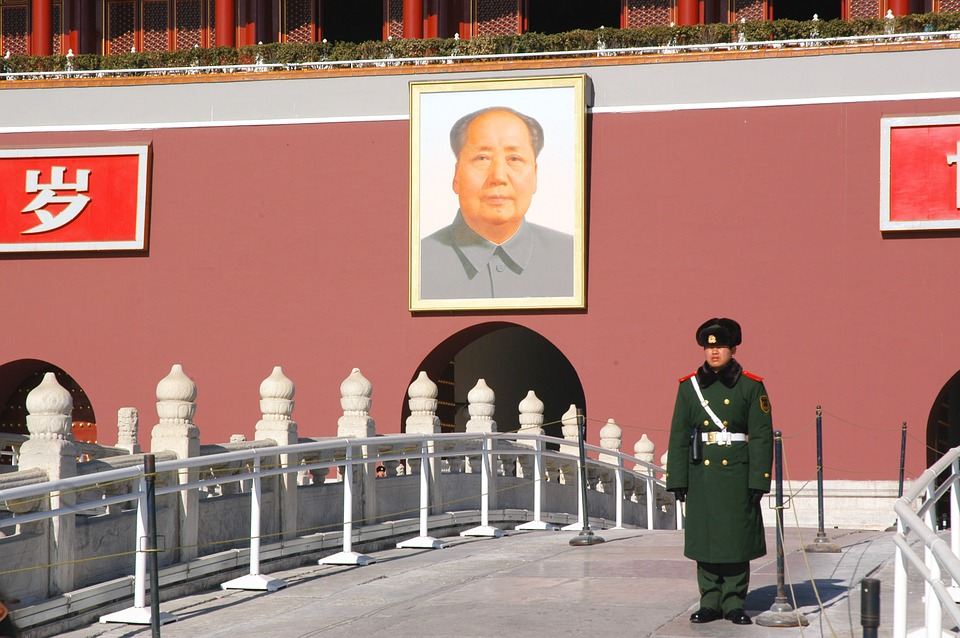By Lucy Austin
Lucy Austin explores whether governance styles are changing in China in light of the introduction of presidential term limits.
On the 11 March 2018, the National People’s Congress (NPC) of China voted to remove presidential term limits. The unusually quiet reaction from critics within China raised red flags in the West, and western media suggested an impending return to a Maoist regime in China. But how accurate are these claims, and how will this constitutional change affect China?
For Dr Stephen Noakes, a Chinese politics expert from the University of Auckland, this comparison with Maoist China is a “stretch”. China is now considered by some to be a second “global superpower” rivalling the United States – as a result, western eyes are glued to China’s every move. Unlike Maoist times, the development of China’s global presence has involved an unprecedented level of openness to the wider world. China’s success post-Mao has largely hinged on a more accepting leadership style that acknowledges that regime survival ultimately depends on securing the Chinese peoples’ confidence. In 2000, this was formally recognised by the inclusion of, and emphasis on, “the important thought of Three Represents”. This doctrine – which stresses the importance of education, political awareness, and good conduct – clearly acknowledges the necessity of popular support. As Noakes argues, “This is a different kind of presidency unfolding now. One in which norms that govern intra-government party democracy don’t seem to apply and one where there is a movement away from the ‘group-think’ model of leadership that was common in previous generations…. [However,] failure to actually placate Chinese society will have dire implications and the president knows that.”
In light of this change in leadership style, moderate checks and balances on the paramount leader were brought into place. In the late 1980s, the NPC brought in succession mechanisms to limit the president’s power – largely in response to a perceived desire for greater government accountability. The third and fourth generations of leadership established a mandatory retirement age of 74, and a 10-year presidential term limit. At the time, it was feared that the Communist Party of China (CPC) may be destabilised by – and, ultimately, fall victim to – factionalism and infighting.
These recent developments arguably undo the safeguards put in place by the NPC. Yet Noakes rejects the argument that this is a simple power grab by Xi Jinping, instead arguing that these reforms have no structural effect and that the President’s power is as unrestrained as ever.
“Now what appears with this recent round of constitutional revisions, Xi is actually walking away from some of these established norms of party governance. Which suggests that they, they may not be, maybe never were, particularly necessary to retain the Communist Party’s hold on power.”
Looking closer at the complex nature of the process to become paramount leader, it reveals the necessity of the peoples’ appeasement.
The paramount leader of China must hold three posts:
- General Secretary of the Communist Party of China
- President of the People’s Republic of China
- Chairman of the Central Military Commission
This is, however, a normative – rather than formal – requirement. As Noakes points out, “in principle it would have been possible for Xi not to institute a ban on term limits in the presidency and still be paramount leader, since he would have continued to be secretary general of the party and chair of the military affairs commission”.
The question, then, is why did the NPC elect to remove the presidential term limit? Bearing that is, who were the intended audience: the Chinese people or the West?
One option is that Xi used this seemingly superficial change to increase his perceived power and, by doing so through the NPC, sought to achieve this with a stronger mandate from the people. Noakes, however, suggests that the west may be the intended audience. These constitutional changes, he argues, send a “particular type of message to the west about the stability of China, or China’s perception of its own stability, at a moment when it is taking an increasingly prominent role in global affairs and, in particular, global security. It kind of suggests that China is going to attempt to stay the course; that it is a strong and stable world power and needs to be dealt with that way”.
With the U.S.’ increasing instability and the resulting uncertainty in international affairs, the timing of this statement seems portentous. The United States chaotic approach to leadership, foreign policy, and trade, can be seen in contrast to this statement of stability from China.
The spark of fear that was lit in the West by the silence of critics within China has gone out over time. Xi was able to remain in power regardless of this reform. This supports Noakes that this is a strategically timed statement to the West. The silence from China, then, can be seen as reflecting the lack of actual structural change. Xi and Trump, both political theatre, are, as Noakes says, “reticent to show any perceived weakness to the other” – accordingly, Xi has taken a hit while his opponent is down.
Lucy Austin is a third-year politics student at the University of Auckland and a journalist at 95bFM radio in Auckland.
This interview was originally aired on 95bFM’s The Wire.
Disclaimer: The ideas expressed in this article reflect the author’s views and not necessarily the views of The Big Q.

